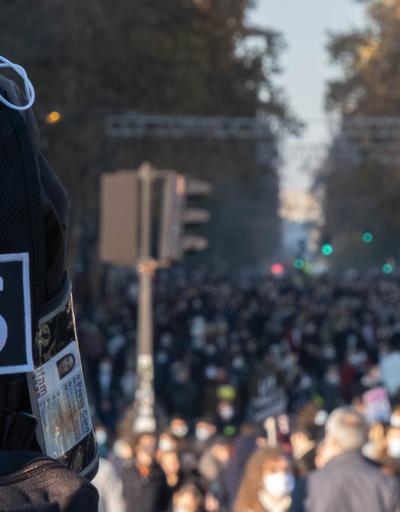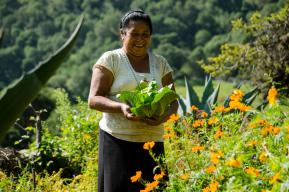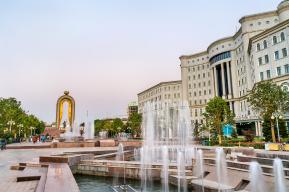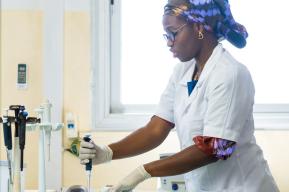
News
Source-to-sea Regional Dialogue: managing water resources from mountains to the ocean in South-East Europe and the Mediterranean

It is a widely held misconception that water is an unlimited resource. Although we live on a planet surrounded by water, present-day practices that mismanage and misuse water not only deplete our precious resource at a rapid pace, but also pose a significant threat to the quality of what water remains. This challenge is further exacerbated by underinvestment in water and sanitation, and the lack of cooperation at transboundary level.
Water is a fundamental part of all aspects of life and a common feature of all living organisms. It is essential for human health and well-being, energy and food production, healthy ecosystems, climate adaptation, gender equality and health, and more. Water is at the core of sustainable development. The 2022 UN Ocean Conference in Lisbon was a unique platform to identify ways to change our current course. During the conference, the UN Secretary-General highlighted the interconnectedness of SDGs and reminded attendees that neglecting the ocean would have heavy repercussions in the future; in particular, that the impact of SDG 14 - Life Below Water, extends beyond marine life, to all aspects of human society and economy.
UNESCO plays a key role in protecting aquatic ecosystems, both freshwater and marine, as well as in encouraging its Member States to engage in productive dialogue. Multiple aquatic ecosystems in South-East Europe and the Mediterranean fall under the coverage of the UNESCO Regional Bureau for Science and Culture in Europe. Working through UNESCO’s Intergovernmental Hydrological Programme (IHP) and through the Intergovernmental Oceanographic Commission (IOC), and cooperating closely with the World Water Assessment Programme (WWAP), the Bureau strives to advance climate resilience and promote sustainable blue businesses, while encouraging cross-sectoral partnerships and creating bridges between SDGs 6 and 14.

We all have a role to play in promoting a more sustainable future for our planet. For the source-to-sea approach to be successful, we need collaboration across different sectors, countries and disciplines. We need to work together towards the common goal of achieving all SDGs while bridging SDG 6 and SDG 14.
To contribute to this mission, the UNESCO Regional Bureau held a high-level Regional Dialogue between experts on water management in South-East Europe and the Mediterranean through a source-to-sea approach on 2 October at its premises in Venice, Italy. The event titled “Source-to-sea Regional Dialogue: managing water resources from mountains to the ocean in South-East Europe and the Mediterranean” brought together a variety of stakeholders and partners, from academic institutions and ministries, representatives from IHP, IOC and WWAP, UNESCO Chairholders, Directors of Category 2 water-related centres, source-to-sea and Ocean Literacy international experts, and UNESCO Biosphere Reserves site managers from South-East Europe.
The Venice high-level Regional Dialogue built on the outcomes of the UN 2023 Water Conference, notably the Water Action Agenda. The Regional Dialogue also took inspiration from the side event, ‘The Source to Sea Approach: Ocean Literacy as a powerful tool to address climate change and promote sustainable blue businesses while encouraging cross-sectoral partnerships and bridging SDGs 6 & 14’, organised by UNESCO (New York, 23 March 2023) and the ‘Peer Learning Round Table 4: SDG 6 Clean Water and Sanitation’ held at the UNECE Regional Forum for Sustainable Development (Geneva, 30 March 2023)
During the event, experts were grouped into multiple thematic groups led by moderators and engaged in active discussions. These dialogues illustrated the challenges facing the implementation of a source-to-sea approach and sought to find solutions, best practices and future steps necessary to address them. Stakeholders benefitted from knowledge sharing on various perspectives such as climate resilience and adaptation, disaster risk reduction in aquatic ecosystems, governance and effective communication.
Projects and activities were showcased as best practices, such as the second edition of the event ‘The water resource: from the Dolomites to the sea’, which took place at Rifugio Galassi, in the heart of the UNESCO World Heritage site The Dolomites (Italy) from 29 June to 1 July 2023.
The letter ‘S’ in UNESCO stands for ‘Science’, but one can also say with confidence that it stands for ‘Sustainability’. In the 3 UNESCO science programmes - IHP, IOC and WWAP -working in a holistic manner for decades, we see an outstanding example of devotion to the sustainable management of freshwater resources and the ocean which give life to humans and all living things on this planet.
Participants placed emphasis on the need to break down barriers and establish communication channels between stakeholders to support the exchange of practices, capacity building and the sharing of knowledge. In addition, they called for the implementation of adaptive management, together with long-term planning and the effective measurement and monitoring of practices to overcome the data and information gap, thus helping to guide policymakers. Lastly, the participants agreed on the need to engage local organisations and NGOs to raise awareness and educate communities on the use of Ocean Literacy in addressing climate change and promoting sustainable blue businesses.
Among the key outcomes of the Regional Dialogue was the strengthening of UNESCO’s regional network of stakeholders working in freshwater/marine ecosystems, biodiversity and climate resilience, as well as partners in freshwater and ocean-related industries. The information gathered through the Regional Dialogue will provide valuable source-to-sea insights and recommendations for policymakers, stakeholders and the wider public; including for future editions of the UN World Water Development Report (WWDR) – including the 2025 edition.









